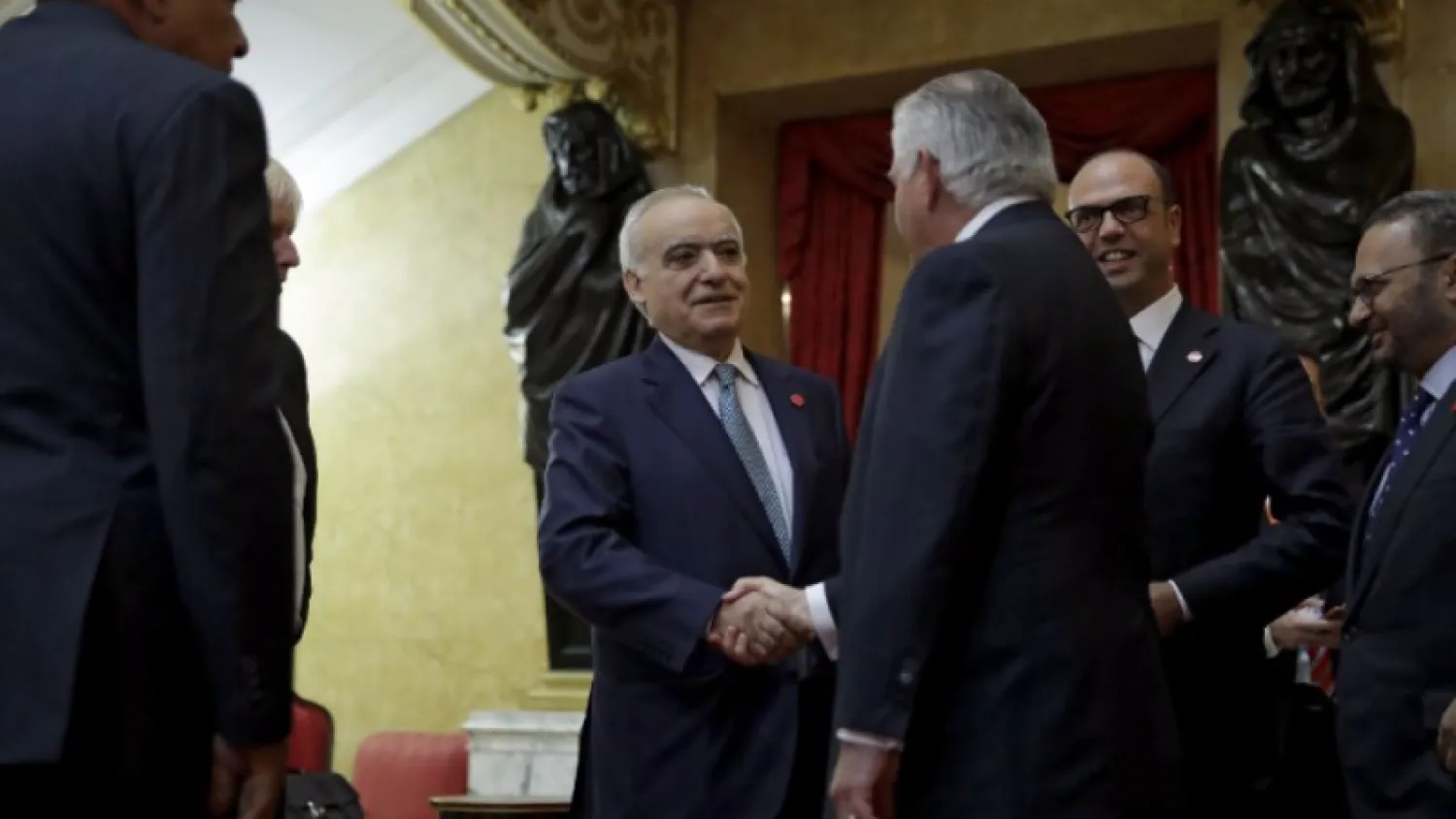The United Nations launched on Tuesday new rounds of political talks between the different Libyan factions with the aim to end the ongoing crisis, under the supervision of UN Envoy to Libya Ghassan Salame.
The closed meeting gathered a delegation representing the Libyan Parliament and another representing the High Council of the State, while initial discussions focused on the two main points of disagreements, namely restructuring the High Council and deleting Article 8 of the Constitution, which specifies the powers of the supreme commander of the Libyan armed forces.
According to Libyan sources participating in the political dialogue, the meetings will witness the signing of a number of items, most important of which is to reduce the number of members of the Presidential Council from nine to three; to instate the post of prime minister; and to revise Article 8, which defines the powers of the Army supreme commander.
In case participants fail to implement these amendments, the sources said that it would be likely to adopt a plan submitted by the UN envoy, which calls for the holding of an expanded meeting gathering 600 to 800 members, with the participation of all Libyan parties.
In a news conference ahead of the meeting, Salame said: “All Libyans are fed up. They are going from transition to transition with no horizon.”
“We have sleeping institutions that need to be awoken, divided institutions that need to be united, and hijacked institutions that need to be rebuilt,” he added.
He stressed that he hoped the amendments could be agreed rapidly and that he sensed a “window of opportunity” for reconciliation.
Last week, Salame outlined an action plan of three phases to resolve the crisis in the country, during a high-level meeting on the sidelines of the UN General Assembly session in New York.
The first phase began on Tuesday with the launching of the new round of talks, which will discuss the amendment of the Skhirat agreement, in accordance with Article 12 of the political deal that established the internationally recognized national accord government in Tripoli.
The second phase of Salame’s plan is a national conference held under the auspices of the United Nations and which will bring together the “marginalized actors” of the Libyan scene in order to launch dialogue with armed groups with the aim of integrating their members into the political process.
The third phase is to hold a referendum to adopt a new constitution within a year, which will pave the way to general presidential and parliamentary elections.









